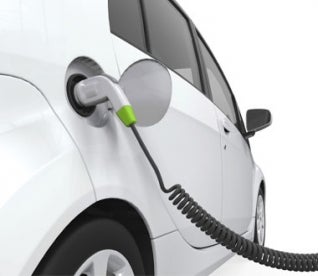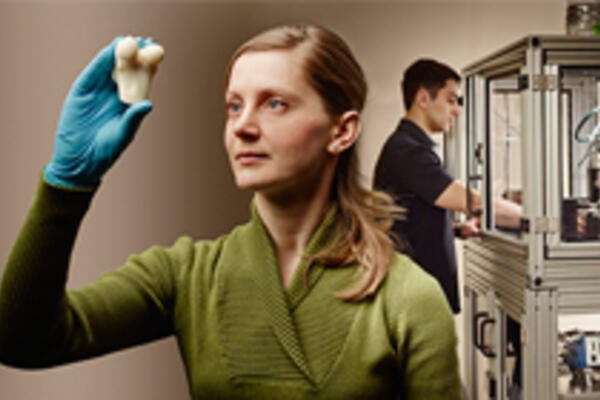
Reusing electric car batteries will cut greenhouse gases
Batteries no longer strong enough to drive cars can have a second life powering lights and appliances for 10+ years, Waterloo research finds

Batteries no longer strong enough to drive cars can have a second life powering lights and appliances for 10+ years, Waterloo research finds
By Christian Aagaard Marketing and Strategic CommunicationsA group of University of Waterloo researchers say the salvage yard need not be the end of the road for exhausted electric-vehicle (EV) batteries.
They’ve found that refurbished EV batteries can have a second career as power sources for everything from lighting to refrigeration.

Photo credit: Nerthuz/iStock
“The idea is you take the batteries out of the car, remanufacture them and use them in a stationary application,” says Steven B. Young, an associate professor in the School of Environment, Enterprise and Development (SEED), Faculty of Environment.
Working with a team of Waterloo researchers, Young has found that repurposing batteries means a further reduction to greenhouse gas emissions, essentially doubling the environmental advantage of buying electric vehicles.
“I was surprised by how beneficial it was,” Young says. “Researchers are keen on recycling (stripping batteries for valuable components). So to say, ‘Hold on, before you do that, we can integrate this into the power system and get this value-added use from the product,’ is kind of neat.”
Lithium-ion EV batteries are larger and heavier than batteries used to start cars with internal-combustion engines. The EV batteries gradually lose the muscle necessary to move an electric car - but they can still draw power and store it for later use.
The team wants to take the research another step further — a trial, possibly in a warehouse with lighting, refrigeration and electric equipment that need power. A bank of refurbished electric-vehicle batteries could capture electricity at cheaper, off-peak times of the day, and use it later to offset costs during peak periods.
Re-using batteries this way formed the basis of a masters thesis completed by Leila Ahmadi in the Department of Mechanical and Mechatronics Engineering.
Sustainable Technologies and Assessments, a scholarly journal, has published the team’s work.
The research team is a classic Waterloo collaboration. Besides Ahmadi and Young, it includes Roydon Fraser, a professor of mechanical and mechatronics engineering; Michael Fowler, a professor of chemical engineering; Sean Walker, a post-doc in chemical engineering; and Arthur Yip, a Waterloo undergrad. Mitsui and Co. (Canada) Ltd. and Nuvation Engineering are industry partners.
Depending on the driving they handle, electric-vehicle batteries may last about eight years. As stationary batteries doing lighter duty, they could work for another 12 years, Young says.
The team is now exploring other issues the research has raised. Government policies, for example, favour generating electricity, not storing it. The researchers also want to know more about the secondary industry that might be created around getting spent batteries ready for stationary use.
“There is lots more to discover in this area,” Young says.

Read more
Special issue of Waterloo Magazine celebrates women who lead, and explores equity in education and the workplace

Read more
Waterloo Magazine, Fall 2014: Smarter cars, high-flying students and better sex for those with bad backs

Read more
Waterloo researchers are using 3D printers to design everything from robot parts to dental implants and circuit boards
The University of Waterloo acknowledges that much of our work takes place on the traditional territory of the Neutral, Anishinaabeg, and Haudenosaunee peoples. Our main campus is situated on the Haldimand Tract, the land granted to the Six Nations that includes six miles on each side of the Grand River. Our active work toward reconciliation takes place across our campuses through research, learning, teaching, and community building, and is co-ordinated within the Office of Indigenous Relations.